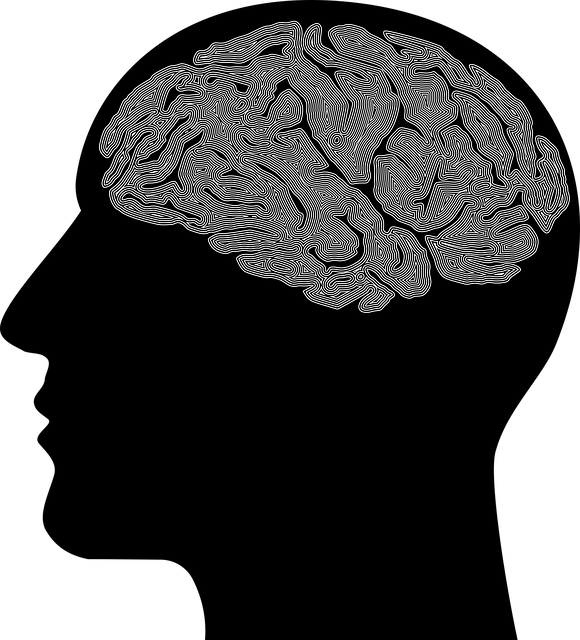Depression requires early detection and professional diagnosis from mental health experts at centers like Longmont Alcohol Abuse Therapy. Key signs include persistent sadness, changes in appetite/sleep, concentration issues, and suicidal thoughts. Lifestyle changes like exercise, healthy diet, and mindfulness enhance mental wellness, while keeping a Mental Wellness Journal tracks moods and triggers. Longmont offers community outreach programs to reduce stigma and support networks. CBT therapy identifies negative thought patterns contributing to depression, teaching healthier coping strategies. Support groups facilitate open dialogue for emotional support and practical strategies. Cultural sensitivity in mental healthcare ensures inclusive prevention through policy analysis and advocacy, empowering diverse backgrounds to build resilience against depression.
Depression is a prevalent and serious mental health condition, but it can be prevented with the right strategies. This article explores comprehensive approaches to depression prevention, focusing on lifestyle modifications, therapy options like Longmont Alcohol Abuse Therapy, coping mechanisms, and building resilience. By understanding the signs, adopting healthier habits, and accessing support, individuals can effectively safeguard their mental well-being and create a more balanced life.
- Understanding Depression: Recognizing Signs and Symptoms
- Lifestyle Changes for Improved Mental Health
- The Role of Therapy and Support Groups in Prevention
- Healthy Coping Mechanisms to Navigate Life's Challenges
- Building Resilience: Strategies for Long-Term Well-Being & Longmont Alcohol Abuse Therapy
Understanding Depression: Recognizing Signs and Symptoms

Depression is a complex mental health condition that impacts millions worldwide. Understanding its subtle signs and symptoms is crucial for early intervention and prevention. Longmont Alcohol Abuse Therapy centers often emphasize the importance of recognizing changes in mood, behavior, and physical well-being. Persistent feelings of sadness, loss of interest in activities once enjoyed, changes in appetite and sleep patterns, fatigue, difficulty concentrating, and thoughts of worthlessness or suicidal ideation are red flags that shouldn’t be ignored.
Seeking guidance from a mental health professional is essential for accurate diagnosis and effective treatment planning. Additionally, practicing mood management techniques like regular exercise, healthy eating, and mindfulness practices can significantly contribute to mental wellness. Keeping a Mental Wellness Journal to track moods, thoughts, and triggers can provide valuable insights and serve as an early warning system. Longmont centers may also offer Community Outreach Programs to promote awareness, reduce stigma, and connect individuals with much-needed support networks.
Lifestyle Changes for Improved Mental Health

Making lifestyle changes can significantly impact and improve mental health. Regular exercise, a balanced diet, and adequate sleep are essential components of emotional well-being promotion techniques. Engaging in physical activity releases endorphins, which act as natural mood boosters, while maintaining a nutritious diet ensures your brain receives the necessary nutrients for optimal function. Additionally, incorporating mindfulness practices like meditation or journaling into daily routines can be powerful tools for emotional healing processes and stress management. These simple yet effective changes can create a foundation for better mental wellness and may even reduce the risk of depression.
Seeking professional guidance, such as Longmont Alcohol Abuse Therapy, is another proactive step. Therapists provide specialized Emotional Healing Processes tailored to individual needs. They offer valuable tools and strategies for managing difficult emotions, improving communication skills, and fostering healthier relationships—all contributing to a more robust mental wellness journal over time. By combining lifestyle adjustments with professional support, individuals can take a proactive approach to depression prevention and enhance their overall emotional resilience.
The Role of Therapy and Support Groups in Prevention

Therapy plays a pivotal role in depression prevention by providing individuals with essential tools to manage and overcome challenging emotions. Longmont Alcohol Abuse Therapy, for instance, offers specialized support for those grappling with substance abuse issues, which often have profound impacts on mental health. Through cognitive-behavioral therapy (CBT), clients learn to identify and change negative thought patterns and behaviors contributing to depression. This evidence-based approach empowers individuals to develop healthier coping strategies and boost their resilience in the face of stress.
Support groups amplify the positive effects of therapy by fostering a sense of community and shared understanding. These groups allow individuals to connect with others facing similar challenges, providing a safe space for vulnerability and open dialogue. In addition to offering emotional support, Longmont Alcohol Abuse Therapy-affiliated support groups can facilitate the exchange of practical strategies for burnout prevention and confidence boosting. By participating in these groups, individuals can benefit from collective wisdom, gain insights into their experiences, and build supportive relationships that contribute to long-term mental well-being.
Healthy Coping Mechanisms to Navigate Life's Challenges

Navigating life’s challenges with healthy coping mechanisms is a vital aspect of preventing depression. This involves a combination of self-care practices, such as regular exercise, adequate sleep, and maintaining a balanced diet, which form the foundation for emotional well-being. Engaging in activities that foster self-awareness exercises can help individuals process their thoughts and emotions constructively, providing tools to manage stress and adversity. Additionally, seeking support from friends, family, or professional therapists like those available through Longmont Alcohol Abuse Therapy services, can offer a safe space for expression and guidance during difficult times.
Cultural sensitivity in mental healthcare practice is another crucial element. Understanding the unique challenges faced by diverse communities and incorporating mental health policy analysis and advocacy ensures that prevention strategies are inclusive and effective. By addressing these issues with cultural awareness, individuals from all backgrounds can access the resources they need to develop resilient coping mechanisms, thereby reducing the risk of depression.
Building Resilience: Strategies for Long-Term Well-Being & Longmont Alcohol Abuse Therapy

Building resilience is a key strategy for long-term well-being and preventing depression. It involves developing mental and emotional fortitude to cope with life’s challenges and stressors. Longmont Alcohol Abuse Therapy, for instance, focuses on empowering individuals to overcome addiction and cultivate healthier coping mechanisms. Through therapy, individuals learn to identify and challenge negative thought patterns, build healthy habits, and strengthen their support systems—all of which contribute to enhanced mental health awareness and resilience.
Confidence boosting techniques play a significant role in this process. By focusing on self-care, mindfulness, and setting achievable goals, individuals can enhance their overall sense of well-being. Mental health policy analysis and advocacy also contribute by ensuring that communities have access to effective prevention programs and treatment options, such as Longmont Alcohol Abuse Therapy, thereby fostering an environment supportive of mental health awareness and resilience.
Depression prevention is a multifaceted approach that involves understanding, proactive lifestyle changes, and access to appropriate support. By recognizing signs early and adopting healthy coping mechanisms, individuals can effectively navigate life’s challenges. Integrating therapy and support groups into one’s routine, along with building resilience, offers robust strategies for enhancing mental health and well-being. Remember, Longmont Alcohol Abuse Therapy is a valuable resource for those seeking specialized assistance in combating addiction and its impact on mental health.














